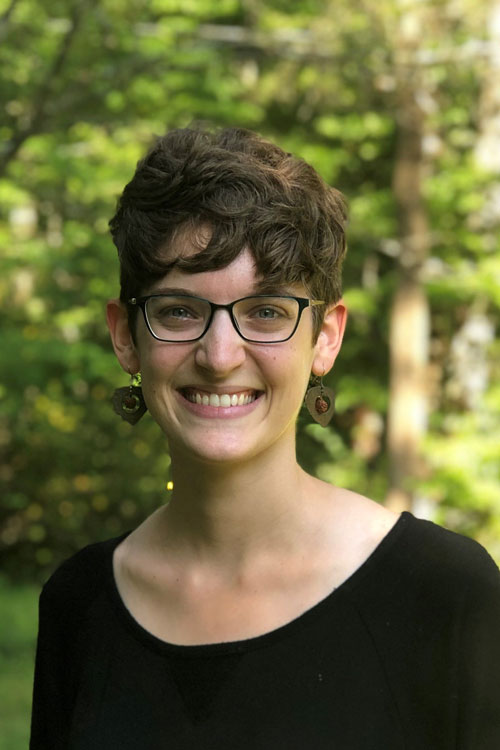May 27th, 2021

Bethel is one of 78 community colleges, four-year colleges and universities nationwide that will be part of the 2021 Institute on Truth, Racial Healing & Transformation (TRHT) Campus Centers.
The Association of American Colleges and Universities (AAC&U) announced the participants May 18, with Bethel the only institution of higher education in Kansas selected to participate in the institute, which will take place virtually June 22-25.
Fourteen of the participating institutions serve as host sites for existing TRHT Campus Centers. An additional 60 institutions and four Texas-based institutions to be selected will send teams to learn more about the TRHT framework and facilitating Rx Racial Healing™ Circles, and to explore their interest in hosting new campus centers.
“We are honored to bring ACC&U’s vision of liberal education and racial healing to Kansas,” said Bethel President Jon C. Gering, Ph.D. “It is consistent with our college vision to increase human flourishing, or shalom, in society.”
Bethel’s team will be Christine Crouse-Dick, Ph.D., professor of communication arts, Peter Goerzen, assistant professor of Bible and religion, Robert Milliman, Ph.D., vice president for academic affairs and dean of faculty, Sheryl Wilson, director of the Kansas Institute for Peace and Conflict Resolution (KIPCOR), and Kirsten Zerger, KIPCOR senior mediator.
“The work of making progress in truth, racial healing and transformation is important work,” Milliman said.
“It also is vital work for our society, as a whole and within its building blocks, like colleges. At Bethel College, we are honored and eager to be part of this vitally important task of shaping a more inclusive, equitable and just community.”
“We are excited to bring our Anabaptist ideals of peace and reconciliation to bear on our nation’s ongoing discussions of racial justice and healing,” added Gering.
“Our participation in AAC&U’s THRT Institute will provide a useful framework for addressing systemic racism on college campuses and in the broader society.”
“AAC&U is thrilled to partner with colleges and universities of all types and sizes across the country to advance the TRHT effort within higher education,” said AAC&U President Lynn Pasquerella.
“We look forward to the opportunity to learn with and from the participants in the 2021 Institute and to support their efforts to promote racial equity and healing on their campuses and in their communities.”
Hosted by individual colleges and universities, and in partnership with AAC&U, TRHT Campus Centers pursue the shared goal of preparing the next generation of leaders and thinkers to break down racial hierarchies and to dismantle the belief in a hierarchy of human value.
Each center implements its own visionary action plan, based on the TRHT framework, to promote racial healing through campus-community engagement.
The AAC&U Institute on TRHT Campus Centers is designed both to support the ongoing work of existing centers and to provide an introduction to the TRHT effort for institutions interested in hosting a new campus center.
“The annual Institute reflects the intentional efforts and deep commitment of TRHT leaders from across the United States in addressing racism and eliminating racialized practices, systems and structures,” said Tia McNair, AAC&U vice president for diversity, equity and student success, and executive director for the TRHT Campus Centers.
“Without their partnership and collaboration, the progress we have made and need to make in building just and equitable communities wouldn’t be possible.”
The Institute curriculum is focused on developing and refining transformative action plans to advance the five components of the TRHT framework: narrative change; racial healing and relationship building; separation; law; and economy.
Together, these five areas encompass the individual, communal and systemic structures that perpetuate arbitrary divisions based on race.
Twenty leaders and change makers from existing TRHT Campus Centers were invited to serve as mentors, to work closely with teams during the Institute. This work will culminate in an opportunity for discussion and feedback from mentors, participants, evaluators and the AAC&U TRHT team.
Concurrent workshops will also be offered as learning opportunities for participants throughout the Institute.
The lists of institutions sending teams to the 2021 Institute, and of the 14 institutions with existing TRHT Campus Centers, are at www.aacu.org/press/press-releases/seventy-eight-institutions-selected-participate-aacu-institute-truth-racial
AAC&U is the leading national association dedicated to advancing the vitality and public standing of liberal education by making quality and equity the foundations for excellence in undergraduate education in service to democracy.
Its members are committed to extending the advantages of a liberal education to all students, regardless of academic specialization or intended career. For more information, visit www.aacu.org









